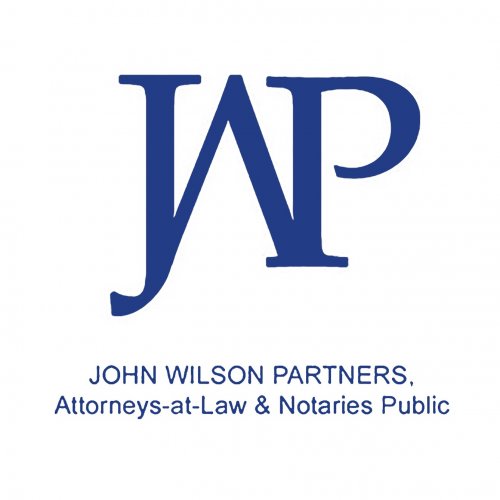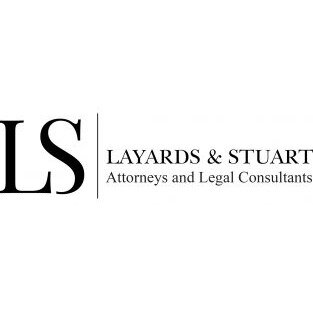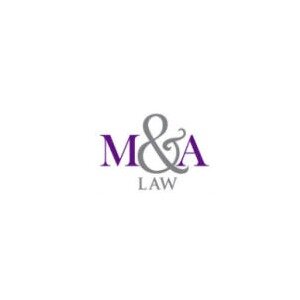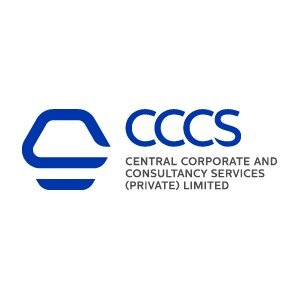Best Restructuring & Insolvency Lawyers in Colombo
Share your needs with us, get contacted by law firms.
Free. Takes 2 min.
List of the best lawyers in Colombo, Sri Lanka
About Restructuring & Insolvency Law in Colombo, Sri Lanka
Restructuring and insolvency law in Colombo, Sri Lanka, covers the legal framework that helps distressed businesses or individuals manage their debts, reorganize assets, or wind up operations. Whether a company is facing overwhelming financial challenges or an individual is unable to meet financial commitments, this area of law provides avenues for negotiation with creditors, formal restructuring, or court-ordered insolvency proceedings. Sri Lanka's insolvency regime, primarily governed by Acts of Parliament and supported by the courts, aims to protect creditors' rights while offering fair solutions for debtors.
Why You May Need a Lawyer
Legal issues involving restructuring and insolvency can be complex and stressful. You may need a lawyer if:
- You own a business that is struggling financially and want to consider restructuring your debts or assets
- You are an individual unable to repay personal debts and seeking relief options
- Your business is being pursued by creditors seeking repayment or threat of liquidation
- You or your business want to negotiate with creditors for better payment terms
- You are a creditor unsure of your rights and remedies during another party's insolvency
- You are subject to bankruptcy proceedings and want to understand your obligations
- There is a need to file or respond to winding up petitions in court
- You need advice on complying with local insolvency and restructuring laws to avoid penalties or criminal liability
- You are seeking to recover debts from insolvent individuals or entities
Local Laws Overview
Sri Lanka's restructuring and insolvency laws are shaped by the Companies Act No. 7 of 2007, the Insolvency Ordinance, and related regulations. In Colombo, as the commercial capital, these laws are frequently actioned through the Colombo Commercial High Court and District Courts. Key aspects include:
- Winding Up Procedures: Companies can be voluntarily or compulsorily wound up. Creditors, the company or its shareholders may initiate proceedings.
- Receivership: Lenders holding security over company assets may appoint a receiver to realize assets and settle debts.
- Scheme of Arrangement: The Companies Act permits companies to propose arrangements with creditors for restructuring debts, which require court approval.
- Individual Insolvency: Individuals unable to pay debts may be declared insolvent by court. The process sets out statutory procedures for asset distribution and discharge of debts.
- Creditor Protection: Creditors have statutory rights to object, participate, and claim in insolvency and restructuring processes.
- Director's Duties: Directors hold duties to creditors once insolvency is likely, such as avoiding wrongful trading and securing best value for creditors.
- Asset Recovery: Insolvency practitioners are empowered to reclaim assets unlawfully transferred before insolvency, under certain circumstances.
Frequently Asked Questions
What is the difference between restructuring and insolvency?
Restructuring involves reorganizing a company or individual's debt and business arrangements to improve financial stability. Insolvency means an inability to pay debts when they fall due and may lead to formal legal proceedings such as bankruptcy or liquidation.
How long does an insolvency process take in Sri Lanka?
The duration varies based on complexity. Cases may take several months to a few years, especially if there are disputes among creditors or complex asset divisions.
Can creditors force a company into liquidation?
Yes, creditors can file a petition in court if a company is unable to meet its financial obligations, potentially forcing a winding up or liquidation.
Is it possible to save a business after insolvency proceedings have started?
There may be opportunities to rescue or restructure a business if arrangements can be reached with creditors or if a scheme of arrangement is approved early in proceedings.
What happens to employees in insolvency?
Employees are generally considered preferential creditors for certain claims such as unpaid wages, meaning their claims may be prioritized in asset distribution.
Do directors face personal liability in insolvency?
Directors must adhere to statutory duties. If found engaging in wrongful or fraudulent trading, they may face personal or even criminal liability.
What is a scheme of arrangement?
A scheme of arrangement is a court-approved agreement between a company and its creditors or shareholders to restructure obligations. It requires approval from relevant parties and the court.
How can individuals declare insolvency?
Individuals or creditors can file insolvency proceedings in court, after which the individual's assets are managed under legal supervision and distributed among creditors.
Can foreign creditors participate in Sri Lankan insolvency cases?
Yes, foreign creditors can participate, but must comply with local laws and may be subject to jurisdictional requirements.
Is legal representation necessary for restructuring or insolvency?
While not always legally required, engaging a knowledgeable lawyer is strongly advised to navigate legal complexities and protect interests.
Additional Resources
If you need further information or support, the following organizations and bodies can be helpful:
- Colombo Commercial High Court - Handles complex commercial and insolvency disputes
- Registrar of Companies - Oversees company registrations and related legal compliance
- Insolvency and Bankruptcy Specialists in Colombo - Many private law firms have departments focused on restructuring and insolvency
- Sri Lanka Bar Association - Provides lawyer directories and public resources
- Department of Registrar of Companies - Offers information on company status and insolvency notices
- Sri Lanka Banks’ Association - May provide guidance on creditor negotiations
Next Steps
If you are facing financial distress or considering restructuring, approach the process informed and supported:
- Assess your financial position to understand the extent of financial distress
- Collect and organize all relevant documents such as financial statements, contracts, and correspondence with creditors
- Seek a qualified legal professional in Colombo who specializes in restructuring and insolvency
- Prepare for an initial consultation with a lawyer who can advise on your legal options and the best course of action
- Act promptly as delays can limit your options and expose you to greater risk or liability
Early legal advice can make a significant difference in preserving your rights and achieving the best possible outcome during challenging financial circumstances.
Lawzana helps you find the best lawyers and law firms in Colombo through a curated and pre-screened list of qualified legal professionals. Our platform offers rankings and detailed profiles of attorneys and law firms, allowing you to compare based on practice areas, including Restructuring & Insolvency, experience, and client feedback.
Each profile includes a description of the firm's areas of practice, client reviews, team members and partners, year of establishment, spoken languages, office locations, contact information, social media presence, and any published articles or resources. Most firms on our platform speak English and are experienced in both local and international legal matters.
Get a quote from top-rated law firms in Colombo, Sri Lanka — quickly, securely, and without unnecessary hassle.
Disclaimer:
The information provided on this page is for general informational purposes only and does not constitute legal advice. While we strive to ensure the accuracy and relevance of the content, legal information may change over time, and interpretations of the law can vary. You should always consult with a qualified legal professional for advice specific to your situation.
We disclaim all liability for actions taken or not taken based on the content of this page. If you believe any information is incorrect or outdated, please contact us, and we will review and update it where appropriate.

















